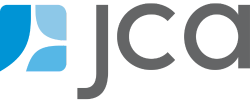5 Signs Your Nonprofit Needs a Data Governance Framework

Brittany Ivey
Senior Consultant
Feeling frustrated with your organization’s data? You’re not alone—many nonprofits struggle to collect, maintain, and utilize data that proves to be relevant or useful. Aligning your data to your organization’s mission and objectives can seem like a daunting task. When your team is ready to undergo a digital transformation, it may be time to consider implementing a data governance framework. (Does that phrase have you heading to Google? Don’t worry—we’ve got you covered.) Read on to learn more about data governance and five signs that your organization needs to implement a framework.
Sign 1: Your team doesn’t know what data governance is.
First, let’s start by defining the difference between data management and data governance. While data management is the ongoing act of ensuring your data is clean and reliable, data governance is a more comprehensive collection of processes and systems that are intended to help your organization collect, cultivate, maintain, and leverage its data. This framework supports your most valuable resource—your staff—and enables them to manage all aspects of data in a secure and actionable manner. A well-structured data governance framework will help your organization achieve its objectives by eliminating uncertainty in data management.
Sign 2: Your team doesn’t trust data outputs.
Your organization has a responsibility to report to a variety of stakeholders. It is imperative that this reporting, as well as other data outputs such as mailing lists, is accurate and timely. If your stakeholders or staff are repeatedly questioning the integrity of the reporting, it is time to consider the root cause of this distrust: Is it due to a system quirk? Or is there inconsistency in how the data is being collected? Once the root cause is identified, a data governance framework can help to address the issue.
Sign 3: You don’t know where to begin with data management.
With years of data in your system, ranging from constituent biographical data to decades of giving history, it can seem daunting to implement a whole framework. Begin by identifying the current gaps in your data management, then prioritize them. What area(s) would have the most positive impact from having better data? What areas will be the easiest to tackle? Implementing some quick wins not only solves immediate problems, but also helps motivate the team to undertake the bigger issues.
Sign 4: Data ownership is siloed across the organization.
It’s a common scene: various departments feel ownership over the data they cultivate, and it leads to gaps and discrepancies in organization-wide reporting. A data governance framework is intended to bring all departments into alignment, and it should consider how all departments collect and use the data. When implementing the framework, it must be integrated into the culture of your organization. Each staff member and department must understand how they interact with the data and how it impacts the overall data management of the organization.
Sign 5: Data management has been inconsistent over time.
While it is natural for strategies to evolve over time, inconsistent data management to accompany those strategies can account for staff frustration, poor quality controls, and weak reporting. A data governance framework can not only establish consistent guidelines for data management, but also prioritize the documentation of how data should be entered and managed across systems. Up-to-date documentation can help organizations overcome turnover woes and enforce consistency regarding how their data is used to support organizational objectives.
Is it time to tackle data governance at your organization?
A good data governance framework will impact all internal aspects of your people, processes, and systems, with an additional positive impact on your fundraising and engagement. If your organization is experiencing any of the signs above, it may be time to establish a framework to help you manage your data in a modern, efficient, and effective manner. JCA can help to jump-start the process and provide best practices for moving forward.

